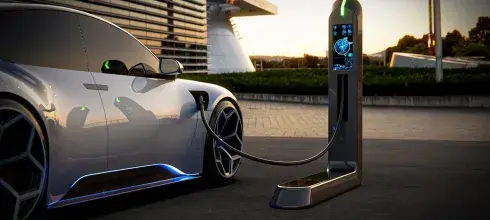
How Will Autonomous Vehicles Change the Car Shipping Industry?
The autonomous vehicle is the latest technological innovation waiting to take the world by storm. Not so very long ago, you might have thought vehicles that drive themselves were pure science fiction. Fast forward to today and it looks like the stories might be coming true.
Understandably, the introduction of autonomous cars is already raising questions. There are also reliability and safety concerns. Another concern is how self-driving vehicles could affect other industries.
Here at SGT Auto Transport, we like to keep our finger on the pulse of all innovations that might affect our industry. There are concerns that autonomous vehicles might affect our industry negatively. However, we also appreciate there are some benefits and in this post, we’ll examine the issue from both sides of the fence.
What is an autonomous vehicle?
Also known as a self-driving or driverless vehicle, an autonomous vehicle is a vehicle that uses a combination of cameras, sensors, artificial intelligence, and radar to travel on the highway between two locations with no human intervention.
To qualify as a truly autonomous vehicle, it has to be able to navigate its way to a predetermined destination over roads that have not been specially adapted. There must be no humans controlling the vehicle.
So far, several autonomous vehicle companies have developed and tested autonomous vehicles including Tesla, Waymo, Nvidia, Zoox, Argo.ai, May Mobility, Momenta, Cruise, and Pony.ai. BMW, Audi, Google, Ford, Tesla, General Motors, Volvo, and Volkswagen. During Google’s testing, a fleet of autonomous vehicles, including an Audi TT and Toyota Prii, navigated their way across several thousand miles of US highways and streets.
What are the advantages of autonomous vehicles?
From a positive viewpoint, autonomous vehicle technology is likely to change our lives in several ways. To start with, it will transform more traditional transport systems. It should also make life easier in some ways because the vehicles have been designed to outperform conventional vehicles.
It is predicted that autonomous vehicles will help save fuel costs and reduce road congestion. Thanks to the AI technology used in these vehicles they’ll also save time for drivers because the vehicle will be able to recognize quick and slow routes.
Driverless vehicles will likely replace traditional public transport systems because they’re more time and cost-effective, more effective, and more convenient for consumers to use.
Self-driving vehicles are also much safer than traditional vehicles and drivers. The smart systems developed for use in these vehicles can detect and react quickly and responsively to dangerous situations. Human driving mistakes such as drunk driving and impaired vision can be avoided completely with autonomous vehicles.
What about the disadvantages?
There are some drawbacks in terms of safety and the economy. So far, autonomous vehicles are in no way prepared to operate without a driver taking on some particular driving tasks.
Currently, they are not safe to run on public highways and will face problems when having to deal with unexpected situations and other human drivers breaking the rules.
Cyber security threats are another big concern. It might be possible for a cybercriminal to hack a self-driving vehicle for a variety of purposes such as stealing or carrying out terrorist activities. Malfunctions in the software would also pose safety problems and possibly lead to road accidents and crashes.
As well as safety issues, autonomous vehicles are also going to affect numerous industries and workers. For example, drivers of all kinds of vehicles such as taxi drivers, bus drivers, heavy equipment drivers, and truck drivers could lose their jobs because their services won’t be needed anymore.
Numerous other industries might also be affected such as insurance companies because the demand for insurance coverage will decrease. Institutions that gain financially from speeding, parking, and other driving offenses will also be impacted by an increase in self-driving cars.
How driverless vehicles might impact auto transport companies
Driverless vehicles will affect auto transport companies both positively and negatively.
The benefits include:
- More efficient hauling experiences due to shorter and faster routes and 24/7 transport services
- Carriers will be able to increase their profit margins because fuel and personnel costs will be lower
In terms of the downside of this type of technology, the demand for auto transport services will likely decrease. If privately owned cars are replaced by autonomous vehicles, fewer people will want to ship them. Should this happen, auto transport companies will have to look for ways to adapt if they want to survive.
Self-driving carriers moving vehicles across the state are still a long way off. It’s not something that’s going to be legalized any time soon, at least until technology can guarantee 100% safe delivery of peoples’ vehicles.
We don’t know when a completely robotic-based car shipping process will become the norm. However, we’ll be eagerly waiting to see what happens and how autonomous technology develops.
If you ever need to ship a car, rest assured we still use human drivers. Your vehicle will be safe and protected throughout the car shipping process. Start the process by getting in touch for your instant car shipping quote.
For all your questions, call (864) 546-5038 or use our Live Chat option to speak directly with our shipping advisors.
FAQs
How can self-driven vehicles change the transportation industry?
One of the biggest ways autonomous vehicles will change the transportation industry is by reducing the number of drivers needed. Automating vehicles has the potential to lower logistics costs by almost 50%.
How self-driving cars are the future of transportation?
Self-driving cars are already on the road, there are just not that many of them right now. Mostly, they’re used in tests, but that is likely to change soon enough.
They are the future of transportation because they could lead to a reduction in traffic fatalities, reduce pollution, and reshape people’s lives.
How will autonomous vehicles change the supply chain?
Autonomous vehicles might be able to help supply chains respond faster to customer demand. Supply chain speed and productivity will be enhanced significantly.
How autonomous vehicles will contribute to the future of logistics?
Autonomous vehicles will improve operational efficiency, lower freight costs, reduce logistics costs, improve truck utilization, and reduce delivery times.
How will autonomous vehicles impact the logistics industry?
Autonomous vehicles have enhanced decision-making capabilities which allows them to realize time and fuel costs, improve safety, and minimize damage and insurance costs.







